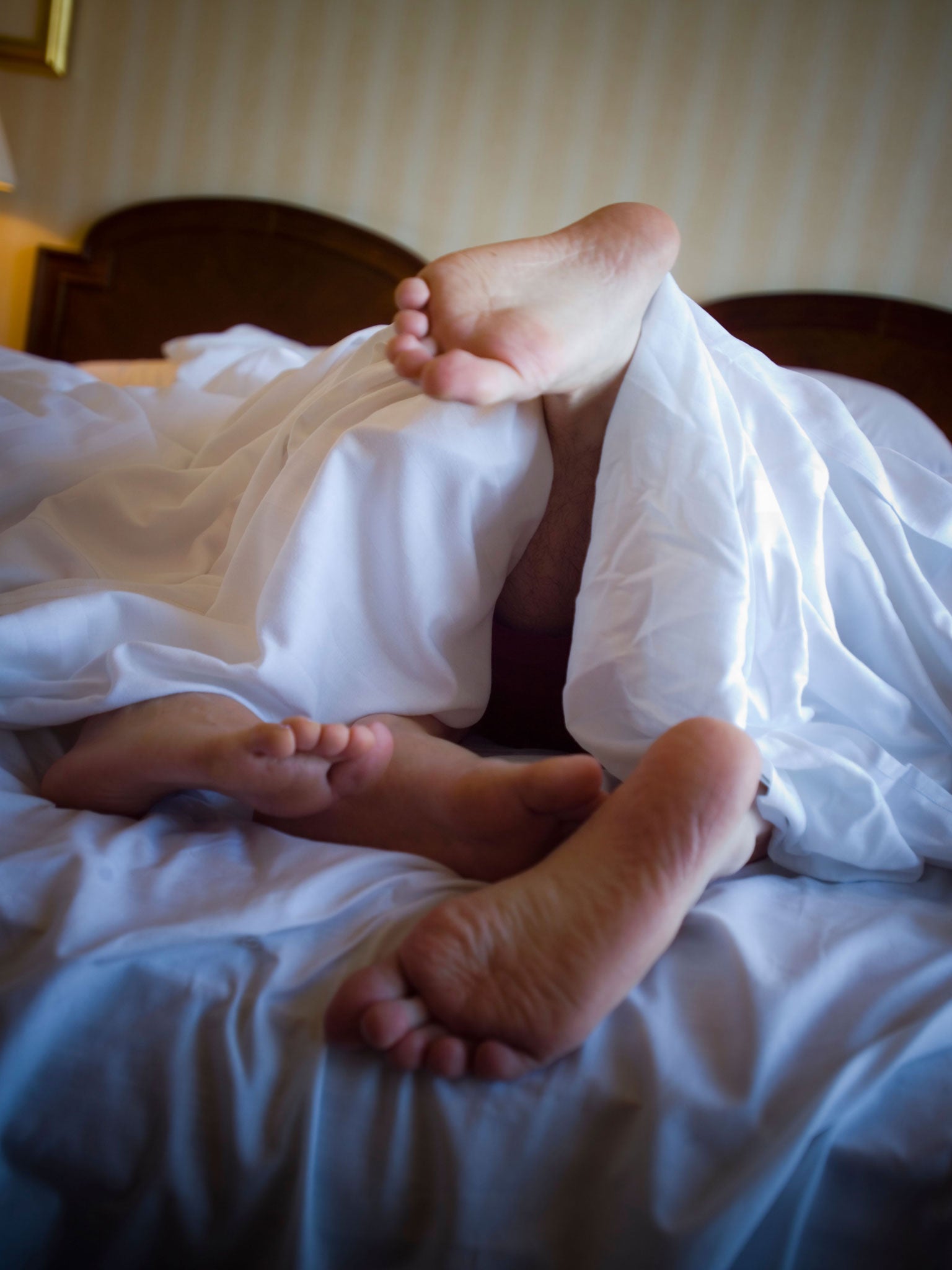Sex: A beneficial (and more enjoyable) calorie burning exercise
Study finds staying in a bed is an effective way of burning calories

Your support helps us to tell the story
From reproductive rights to climate change to Big Tech, The Independent is on the ground when the story is developing. Whether it's investigating the financials of Elon Musk's pro-Trump PAC or producing our latest documentary, 'The A Word', which shines a light on the American women fighting for reproductive rights, we know how important it is to parse out the facts from the messaging.
At such a critical moment in US history, we need reporters on the ground. Your donation allows us to keep sending journalists to speak to both sides of the story.
The Independent is trusted by Americans across the entire political spectrum. And unlike many other quality news outlets, we choose not to lock Americans out of our reporting and analysis with paywalls. We believe quality journalism should be available to everyone, paid for by those who can afford it.
Your support makes all the difference.Working off the extra pounds gained over Christmas may have just got easier, after a study concluded sex should be considered a "significant" exercise for burning calories.
Research conducted by scientists from the University of Quebec in Canada found sexual activity can be an effective way of burning energy when compared with moderate intensity exercises.
In the study, researchers recruited 21 heterosexual couples aged between 18 and 35 from Montreal and asked them to have sex once a week for a month.
During this period, the participants were asked to perform their usual sexual activities and instructed not to drink and use drugs or medication for erectile dysfunction. After each sexual activity, the couples then completed a questionnaire to record their enjoyment.
At the start of the study, the couples also jogged on treadmills for half an hour as part of an endurance exercise session and were fitted with arm bands to measure their energy expenditure and their metabolic equivalent of task – (MET), which compares an activity to sitting still, measured at 1-MET.
The results showed that women burned 3.1 calories a minute while having sex, and 7.1 a minute when running on the treadmill. Men burned 4.2 calories a minute, in comparison to 9.2 jogging. However, some of the men used more energy for brief periods during sex than while they were running on the treadmill.
During sex, the authors recorded 6.0 METS in men and 5.6 METS in women, which represents a ‘moderate intensity’ activity - roughly equivalent to cycling or playing doubles tennis.
Lead author Julie Frappier concluded: “The present study indicates that energy expenditure during sexual activity appears to be approximately 85 kCal or 3.6 kCal/min and seems to be performed at a moderate intensity (5.8 METS) in young healthy men and women. These results suggest that sexual activity may potentially be considered, at times, as a significant exercise.”
Perhaps unsurprisingly, almost all participants (98 per cent) found sex a more pleasurable activity than the treadmill and 81 per cent said they felt high levels of personal pleasure from undertaking sexual activity.
Miss Frappier added: “Moreover, both men and women reported that sexual activity was a highly enjoyable and more appreciated than the 30 min exercise session on the treadmill. Therefore, this study could have implications for the planning of intervention programs as part of a healthy lifestyle by health care professionals.”
The study Energy Expenditure During Sexual Activity In Young Healthy Couples was published in the journal PLOS ONE.
Join our commenting forum
Join thought-provoking conversations, follow other Independent readers and see their replies
Comments